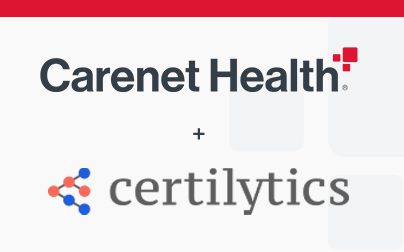
What can prompt and motivate hesitant Medicare plan members to seek out and show up for their preventive and chronic care appointments? That’s the riddle everyone in the industry continues to try to solve, for the good of patients, HEDIS® and Stars quality measures, and everyone’s bottom line.
According to Stacie Stoner, Carenet Health’s VP of Client Success, the answer is continuously evolving—but almost always lies at the intersection of reliable best practices, minor tweaks to those proven strategies, and new ideas for closing gaps in care.
To give us a quick view of what’s getting results in today’s healthcare landscape, we asked Stacie to share a few insights from Carenet’s gap-closing engagement work, which supports HEDIS and Medicare Advantage Stars initiatives for more than 100 health plans. (For a complete review of strategies that are working to close more gaps in care, download our brief.)
Q: Reluctance to schedule care has always been an issue, but we know there are tried-and-true tactics that can and do work. Which of those would you say are still working exponentially well right now?
A: At Carenet, we’ve been helping Medicare plans close gaps in care for more than 15 years, and we know for certain that one of the most pressing reasons members don’t act is a lack of understanding of what’s really needed, when and why. (Editor’s note: Studies show nearly 9 out of 10 adults struggle with understanding routine health information.)
Calm and knowledgeable, voice-to-voice conversation still works better than anything else for the Medicare population, to explain unfamiliar terms and provide reassurance. Once that connection is made, our data shows that 70% or more of contacted members will agree to schedule an appointment. The key is ensuring the person representing the plan can establish trust, and educate and encourage members with empathy and age sensitivity. That level of skill can only be accomplished through rigorous team hiring, training and coaching.
Q: People aren’t answering their phones as much these days, though. Doesn’t that have an impact?
A: It absolutely does. Making that connection in the first place, getting a member to answer the phone call, isn’t getting any easier—although sophisticated data appends, advanced CRM technology and predictive dialing strategies can all increase contact success by a substantial amount. We’re also finding that by combining text messaging prior to attempting phone calls, we can essentially “prime” a member to interact. Familiarity is established and the member begins to anticipate a conversation. Specifically, our data shows that two or three preliminary texts can deliver excellent results. Our clients are happy, and their members feel valued and cared about.
Q: Are there new ways plans can anticipate and prevent gaps in care before they occur?
A: Data and analytics, and now AI, certainly have a role to play there. But one high-touch strategy we’re seeing more plans leverage is member advocacy programs.
The use of advocates can establish a personal point-of-access for members, not only to help them understand everything from prevention to disease management needs, but also to easily link them to necessary care and information. Medicare members appreciate that their personal advocates make healthcare navigation less frustrating and confusing. We’ve seen that proactive advocacy effectively demystifies healthcare steps and keeps the member engaged.
Q: Is there a common mistake you’ve seen plans making in their approach to HEDIS improvement today?
A: Medicare plans that approach HEDIS as a short-term, one-channel, seasonal project—as opposed to an ongoing, multi-channel initiative—tend to have a harder time hitting performance goals. Year-long strategic engagement helps the member-plan relationship grow over time, and gaps can be addressed sooner.
Q: What final advice can you share for closing gaps in care?
A: To stay in step with consumer expectations and behaviors, evaluate your gap-closing strategies at regular intervals, and be ready to update them. Keep an open mind, and be willing to test new ideas. Continuous optimization of member engagement, before, during and after an outreach effort, is important.
>>> Discover much more about what’s working to close gaps in care in our brief, New + Tried and True: Five Ways to Close More Gaps in Care.
>>> Rather have a conversation about your needs right now? Contact us for an in-depth discussion with our Medicare engagement experts.
HEDIS® is a registered trademark of the National Committee for Quality Assurance (NCQA).



